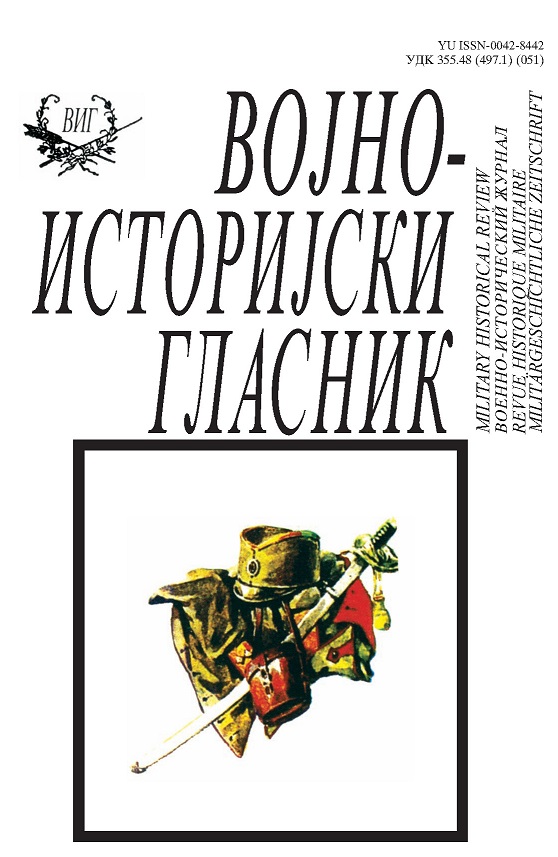„Анти-империјалистичка солоданост“? Војна помоћ ДР Немачке ослободилачким покретима и оружаним снагама у тзв. Трећем свету
“Anti-imperialist solidarity”? Military assistance of the GDR to liberation movements and armed forces in the so called Third World
Author(s): Klaus StorkmannContributor(s): Marin Markoš (Translator)
Subject(s): Military history, Political history, International relations/trade, Post-War period (1950 - 1989), Cold-War History, Peace and Conflict Studies
Published by: Institut za strategijska istraživanja
Keywords: Democratic Republic of Germany (DRN); National People's Army (NNA); military aid; Third world; weapons; training;
Summary/Abstract: The Cold War was neither a national nor a bilateral conflict. It was multilateral in many respects. Research into military activities vis-à-vis third states and especially the so-called Third World, therefore, cannot be limited to individual states like the GDR. Rather, successful research inevitably calls for a supranational and multilateral point of view. To determine the historical scale and impact of GDR military aid it would be necessary to take a short look at the military commitment of other states, east and west, and their armed forces in the Third World and in Southern Africa in particular. However, due to the limited scope of this paper, this point cannot be addressed further more. Only this aspect: To protect their interests in Africa, Middle East or Latin-America the superpowers exploited the conflicting parties. East and west regarded the conflicts in Southern Africa as a Cold War sideshow, albeit not quite that „cold“. The East German NVA was by far not the only actor in this play. Weapons from the north, from east and west, were used against the civilian population. And with the end of the East-West conflict neither the delivered weapons nor the guerilla fighters disappeared. To this day, the military commitment of East Germany in the Third World, in particular in Southern Africa, has been the topic of sometimes unfounded speculations. This paper set out to contribute to an academic reappraisal of this secret part of GDR history. Between 1967 and 1989 the GDR supported its partners in Africa, the Middle East, Asia and Latin America in military matters. For more than 20 years the East German military provided so-called solidarity assistance. East Berlin supplied weapons and military equipment but also medical relief goods and food. The GDR army trained foreign military personnel at its schools in East Germany. At least in the cases of Southern Africa and Mozambique in particular there is no evidence in the files and other proofed sources that East Germany deployed military combat units or a large number of military advisers. The above-mentioned initial research results have confirmed that military contacts with foreign countries were by no means a sole responsibility of the NVA. Rather, they were determined by the foreign-policy objectives and ideological principles of the state and party leadership and specified down to the last detail. The armed forces acted on the explicit directions of the party leadership. The People’s Army therefore acted as part of the GDR’s agreed foreign policy and met the requirements and objectives of the SED leadership. Sensational reports have always been in demand. But they do not do justice to the diversity of motives and the very varied, repeatedly conflicting and quite contradictory interests and objectives of the GDR. However, East Germany did not provide any political solution in the so called Third World. Given its weak international standing, the GDR was not in the position to do so.
Journal: Vojnoistorijski glasnik
- Issue Year: 2010
- Issue No: 2
- Page Range: 60-74
- Page Count: 15
- Language: Serbian

